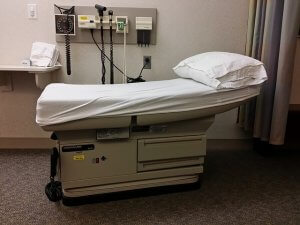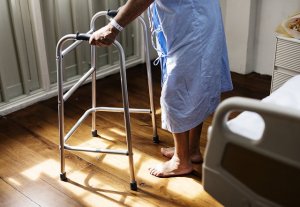There is a primary care provider shortage in the United States that is only growing as elderly and obese populations grow and increase demands on the medical community. Much of their treatment involves a heavy concentration on family or internal medicine to help patients adhere to effective health maintenance strategies. Yet, most U.S. medical graduates seek careers in sub-specialty medical fields where the pay is higher, and the paperwork is less.
While it is understandable to want a higher paying career with less paperwork, primary care physicians are not low income workers. The average income of a primary care physician in the United States is over $200,000 per year. Primary care workers also get the advantage of knowing their patients, and they get to take part in the continuance of care where real results often take place. Their place in the medical community is essential for all populations, and primary care doctors should be proud of their role in society.
Opportunity for FMGs
The current predicament of low numbers of U.S. Medical Graduates seeking primary care positions is an opportunity for Foreign Medical Graduates (FMGs). The number of family medicine positions available, for example, has increased each year since 2008. However, the amount of U.S. Medical Graduates seeking those positions has remained stable. This means that there are more available family practice positions, but U.S. Medical Graduates are not filling them.

Foreign Medical Graduates frequently struggle to get into residency programs during the Match. This is hopefully becoming less common, as the nation (and program directors) realizes the advantage of adding physicians who have been trained abroad to the mix of U.S. health care providers. However, it is still a struggle.
A lot of this struggle has to do with the unknown, and different areas of the world have different requirements and different demands for excellence. The Educational Commission for Foreign Medical Graduates (ECFMG) tries to alleviate the number of unknowns by using its own set of credentials including requiring that medical schools belong to a list of accepted schools. However, there is still a bit of uncertainty about exactly how one country’s approach to medical education compares to the United States’ approach.
There is also a want to give opportunities to medical students who received their education within the United States in an effort to better the country’s resources. If U.S. Medical Graduates aren’t seeking primary care professions, this ability to give opportunity will have to be shifted to FMGs.
Rural and Underserved Regions
One of the biggest challenges to providing primary care to all individuals within the U.S. is getting care to those who are in rural or otherwise underserved areas. Physicians who specialize are often in or near the city. There are also a lot of primary care providers who live or work in the city. This leaves little care for those who live in rural and underserved areas.

What does this mean for FMGs? It means the ability to start your own rural healthcare practice with little competition. It means being on a first-name basis with most of your patients. It also means having time to care for your patients and not having to run them through your exams like they are cogs on a wheel. Rural healthcare has lost its appeal for many entering the healthcare field who want the chaotic urban healthcare environment, but there are many benefits to rural healthcare that are taken for granted.
Choosing Primary Care During the Match
If you are a FMG with dreams of a particular sub-specialty, you should follow your heart and your brain. However, if you think providing care in a rural area, or providing general care to the public, is within your realm of happiness, opt for primary care. Not only do you have a better chance of getting into a residency because of the larger number of slots available for FMGs, but you would be filling a gap in the U.S. Healthcare System that is badly needed to be filled.
What about pay and paperwork?
The average pay for a physician in a rural area is enough to support a very comfortable lifestyle, pay off student loans, and save for retirement. Rural areas of the U.S. generally have lesser living expenses, so average physician salaries amount to higher amounts when all things are considered.
As far as paperwork, EHRs have made data entry a requirement for the job, and primary care providers seem to have to highest amount of information to enter because all body systems are involved in the primary care wheelhouse. There isn’t much that can be done about this chore, but hopefully the act of caring for a patient in his or her entirety makes up for the paperwork somewhat.
In many cases, the occupation of a primary care giver is what made medical graduates choose their profession in the first place. You will know your patients, and they will depend on you in order to take care of their medical needs.


 An August 2019
An August 2019  Geriatric medical practice comes with its own set of challenges, and the elderly may have multiple morbidities that require complex treatment in an environment of poor understanding and compliance. However, not every elderly person has the same level of ailments, and those in the community may function as well as young adults. In either case, it is important to have compassion for those suffering from cognitive decline while also acknowledging that age does not automatically equate to cognitive decline. One of the very apparent results of this is under-treatment of geriatric patients because of an acceptance that their decline is inescapable.
Geriatric medical practice comes with its own set of challenges, and the elderly may have multiple morbidities that require complex treatment in an environment of poor understanding and compliance. However, not every elderly person has the same level of ailments, and those in the community may function as well as young adults. In either case, it is important to have compassion for those suffering from cognitive decline while also acknowledging that age does not automatically equate to cognitive decline. One of the very apparent results of this is under-treatment of geriatric patients because of an acceptance that their decline is inescapable.